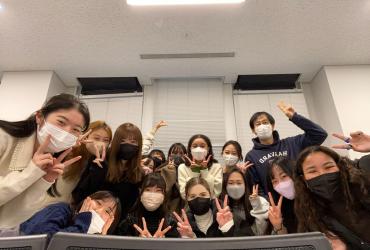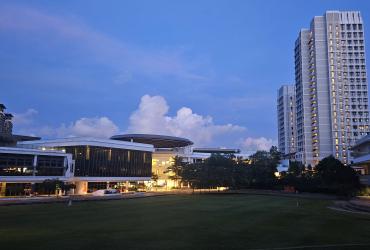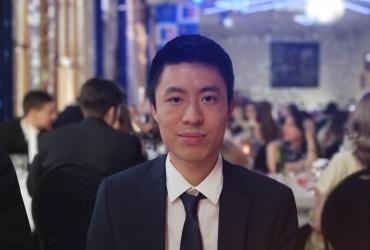Orientation and First Weeks
As a School of Commerce student at Waseda University, my orientations were minimal and sent in advance via email. My peers from other faculties had different orientation programs which were often in person so keep in mind it varies. These orientations will guide you for what you must do as a new entrant to Japan such as governmental registry so as long as you pay attention and ask clarifying questions to your advisors and peers, you will be fine. If you already know some other exchange students I highly recommend completing the legal requirements together such as going to the ward office to register your residence.
Accommodation and Living
My university, Waseda, offered limited exchange student accommodation through a lottery system. Fortunately, I was selected which made things easy. However, I met many fellow exchange students who were not selected, so be prepared to find your own accommodation. Just don’t leave accommodation to the last minute.
Learning and Adaptation
At Waseda University, classes are structured in 100-minute time periods. While the semester length is comparable to SFU, Waseda has only two semesters with longer breaks in between. The academic experience varies by faculty. In the School of Commerce, the workload was quite manageable compared to SFU's. Unlike SFU, course selection follows a three-round lottery system rather than a 'first come, first served' basis, so it's advisable to have backup plans in case you don't secure a spot in your desired courses.
Waseda offers classes taught entirely in English, although the selection is naturally more limited than Japanese-taught classes. However, Waseda provides unique courses not available at SFU, offering a Japanese perspective that adds a distinctive dimension to the academic experience.
Accomplishments and Challenges
Studying abroad not only provides unique academic learning but also opportunities for personal growth, independence, and cultural exchange as you explore a new world. Beyond my studies, I expanded my perspective on the world through the friendships I formed with people from various parts of the globe. My proudest development was learning to tackle unforeseen obstacles and navigate the unknown with confidence. I attribute this growth to the necessity of adapting to cultural shocks and the countless trips outside Tokyo, where I had to learn how to find solutions either independently or knowing to rely upon others.
Social and Extracurricular Activities
As you are joined by many other exchange students, everyone is immediately searching for friends. I was fortunate to receive accommodation from the university where I found many of my friends through merely being neighbours. As you will likely be taking classes taught in English, you will have ample opportunity to meet other exchange students and even locals who are learning English. If you are keen to make many local friends, I highly recommend joining a circle, which is essentially what we think of as a club (not to be confused with “clubs” which are much more intensive). Although some circles actively try to recruit foreign students, I highly recommend trying to join any circles that interest you even if there are not any other foreigners. For instance, I joined a football/soccer circle and despite being the only foreigner, was immediately welcomed and made many friends. It may be difficult to find a circle if you are coming in the fall as most do their recruiting at the start of the academic year in April, but the effort is very worthwhile.
As for activities, Tokyo has endless places to explore and do. There is endless content online which can guide you such as Japan-guide and Tokyo Cheapo. I recommend regularly checking for upcoming events such as limited exhibitions or festivals. Beyond Tokyo, Japan has so much to offer and compared to Canada, traveling is very affordable.


















